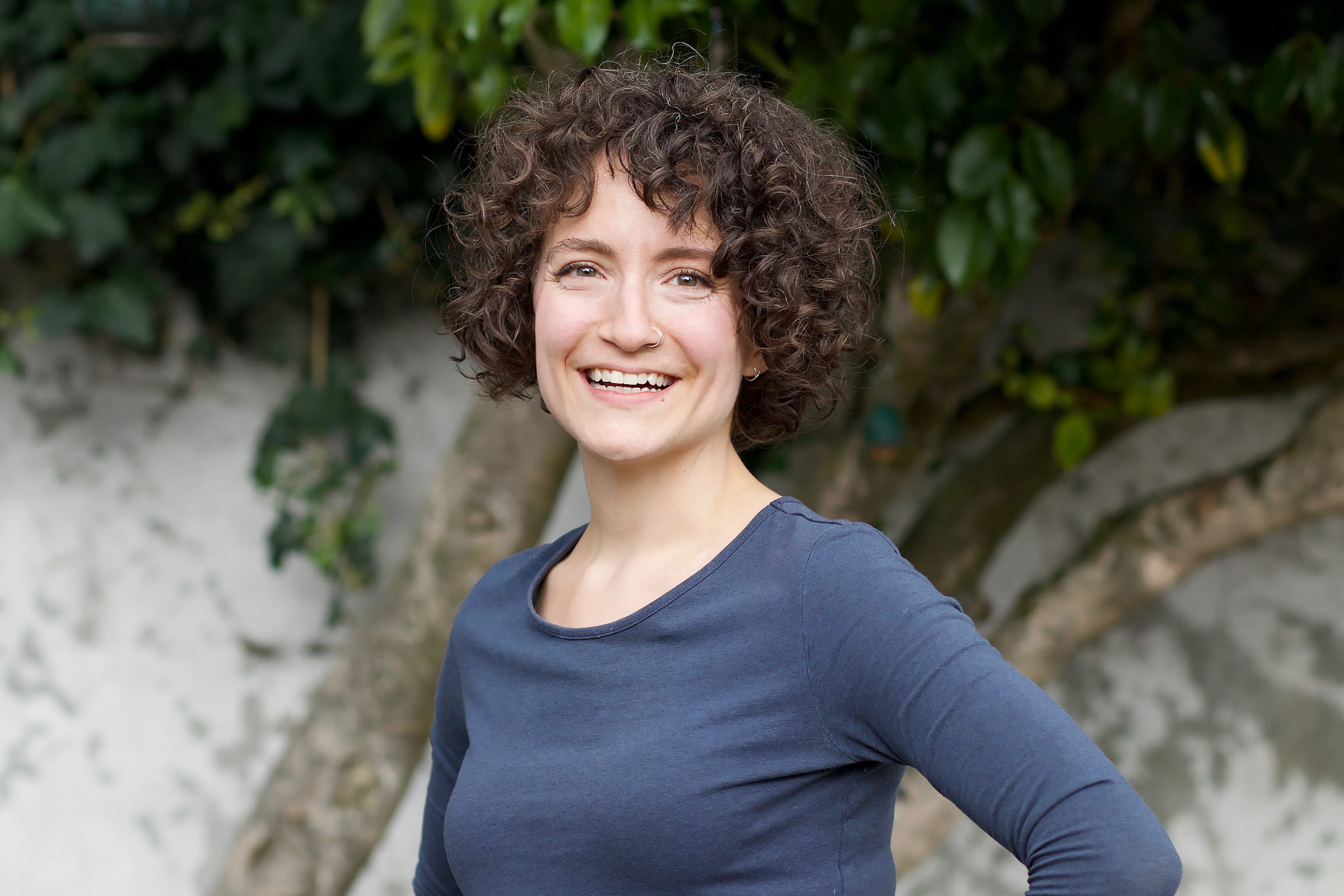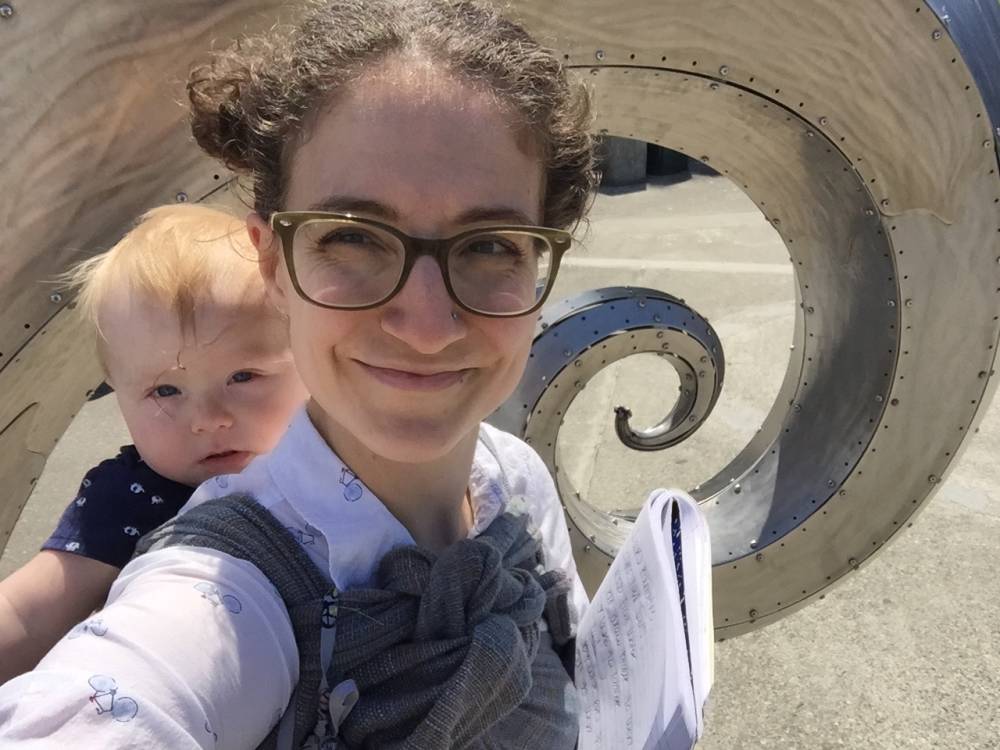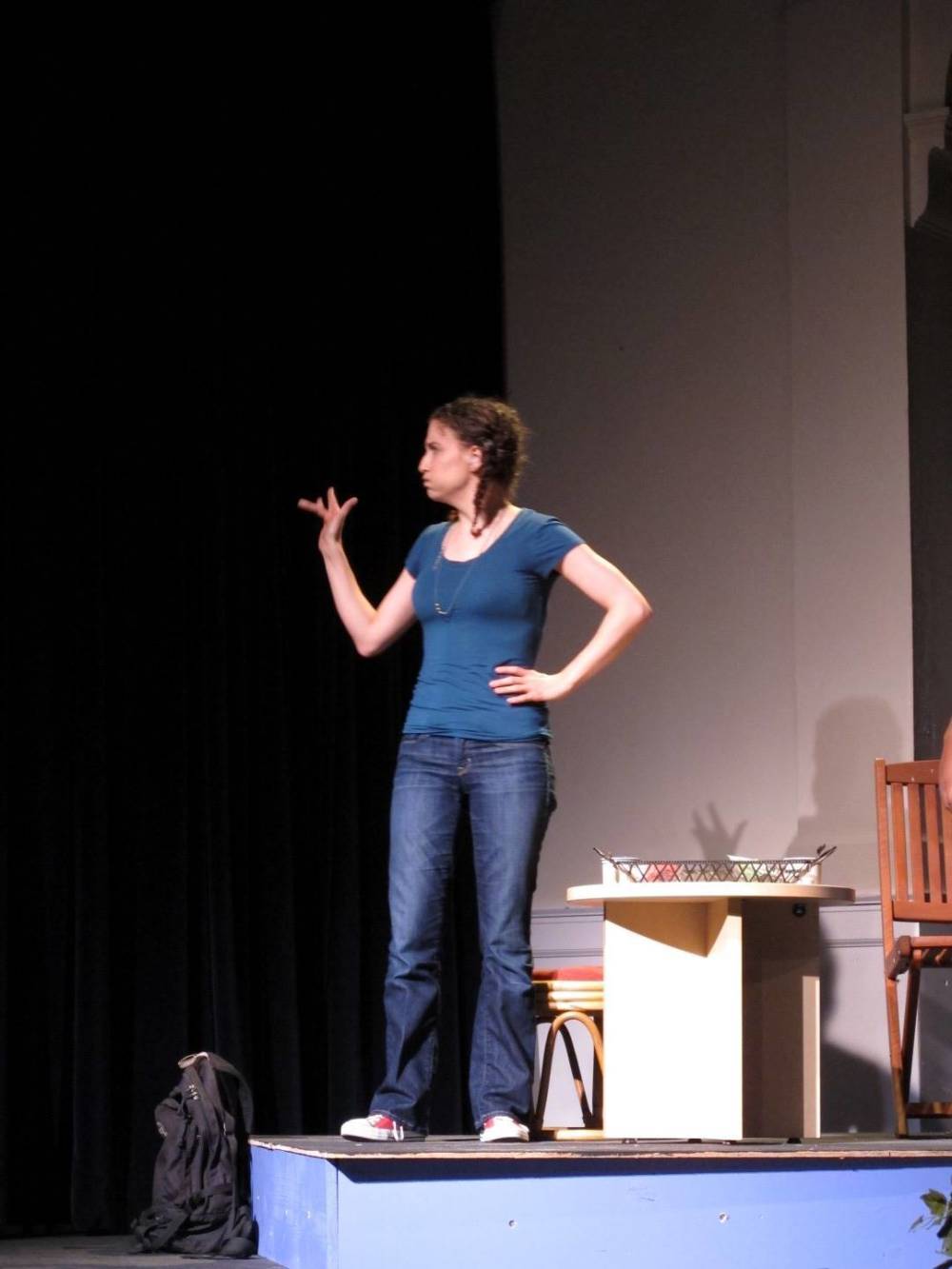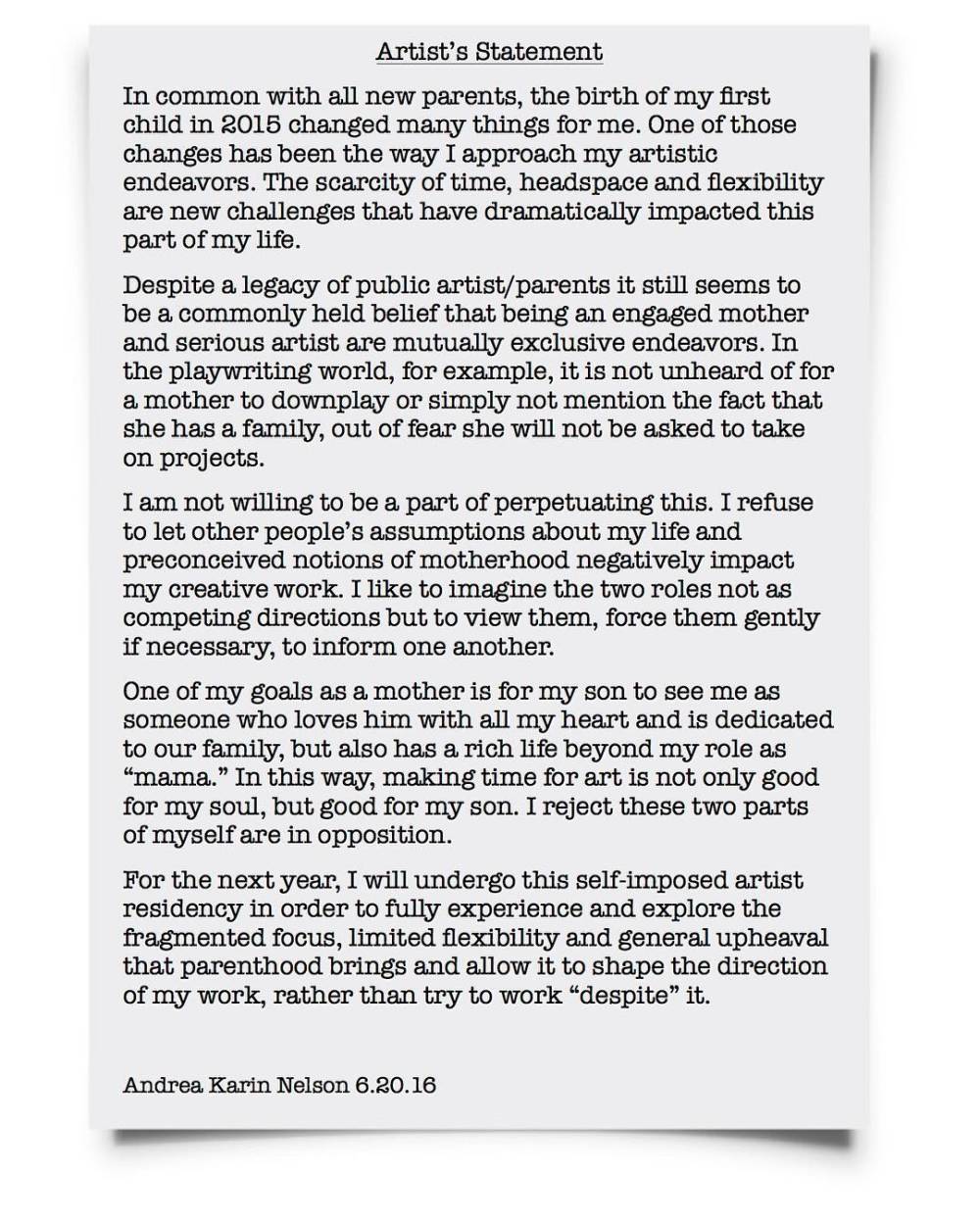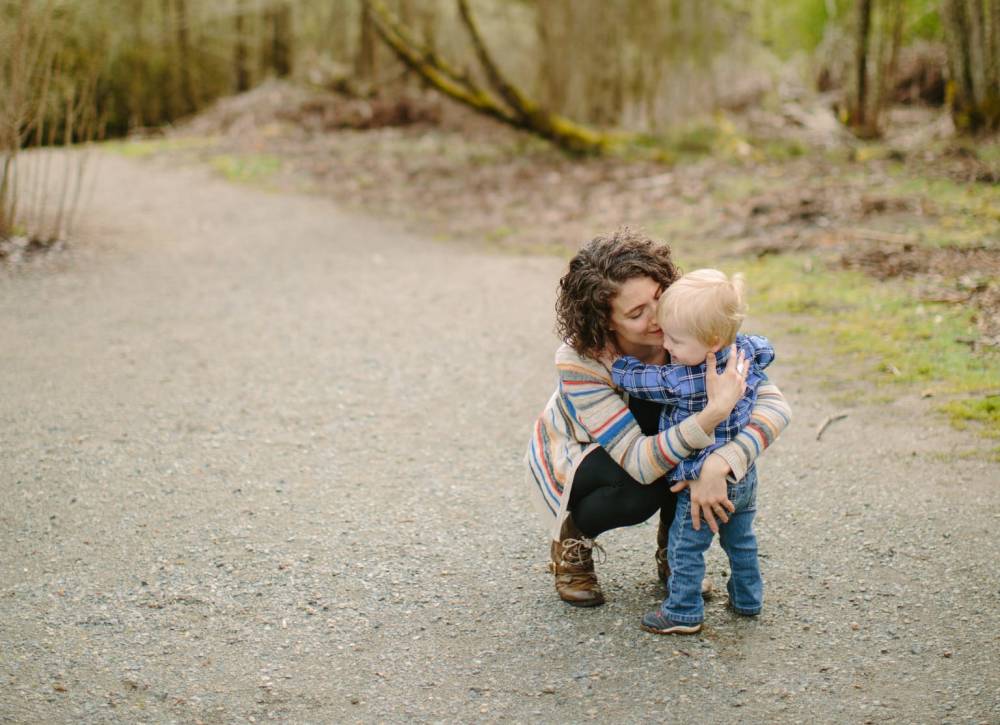Where did you grow up? I grew up in Auburn, Washington, about 30 miles south of Seattle. I now live in Seattle with my husband Brad and our son August, who is two and a half.
When did you decide you wanted to be a writer? When I was in high school, I decided I wanted to become an actor, and I went to college for acting at the University of Washington. I always thought that someday I would want to do some writing, and I wrote some one-woman shows, but I still really thought of those as a vehicle for performing.
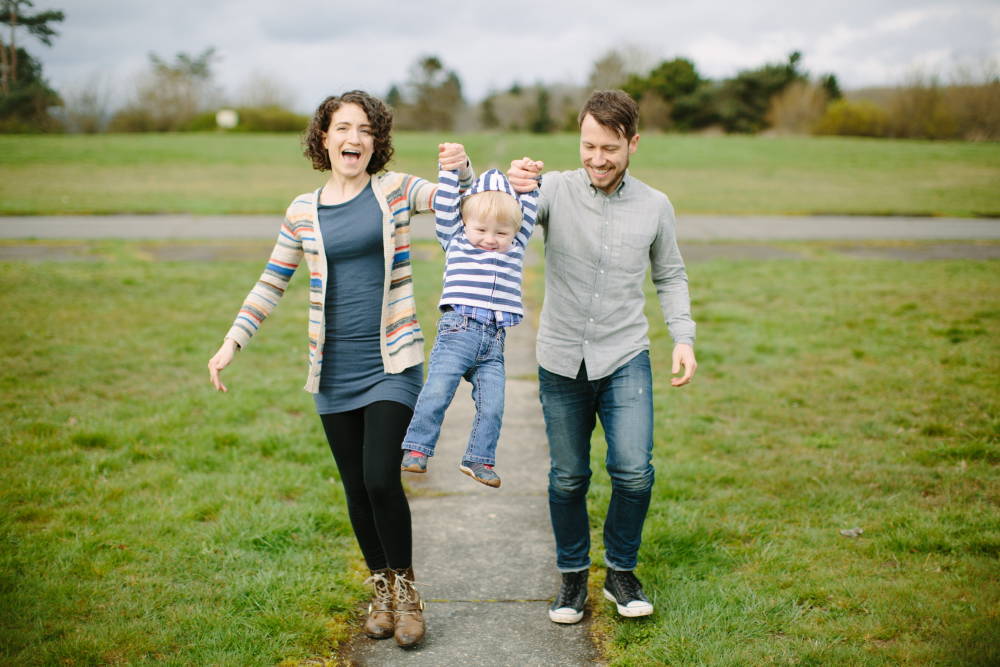
Then about five years ago I got pregnant, and ended up having a miscarriage at 10 weeks. That pregnancy made me start to think about how I could fit art into having a family. Concurrent with that, acting was starting to become really negative for me, the hustle of it. I had gotten really sensitive about acting. Those two things (the pregnancy and my attitude change) aligned and I thought, I want to start having control over my art. I want to have an easier way to fit it into my family life.
I have a friend who is an actor, and had been performing for decades. She doesn’t have kids, but she is married. She’ll go for a couple of years at a time without doing a show, and she said to me, “You know, for me to be away from home and away from my husband, a project really has to make my heart sing.” So I decided that was going to be my new barometer, and I realized that I had been spending so much time supporting other people’s projects. I wanted to have control over my own projects. After I started thinking about it that way, I found that what I really wanted to be doing was writing and telling my own stories.
I perform occasionally now, but my bar is set so much higher, especially now that I have a two year old. If I choose to do a project, it makes an impact on the people around me. Writing has become my focus for a lot of reasons: artistic reasons, life reasons, family reasons.
“…I thought, I want to start having control over my art. I want to have an easier way to fit it into my family life.”
What projects are you working on right now? I’m just finishing up my latest edit of my first novel. It’s a middle grade novel (grades three to five) about a 10 year old girl who discovers that her mom is a secret leader of a revolution against an evil warlord in an alternate dimension that can only be reached through the Ballard Locks. I’m really close to sending that to my critique partner for the next level of critique.
Beyond that, I’m working on pulling some old plays off the shelf, and doing some revisions to submit them out to some new places. I’m hoping to get some development opportunities for that. I also finished a collection of haikus on motherhood that I am trying to get published.
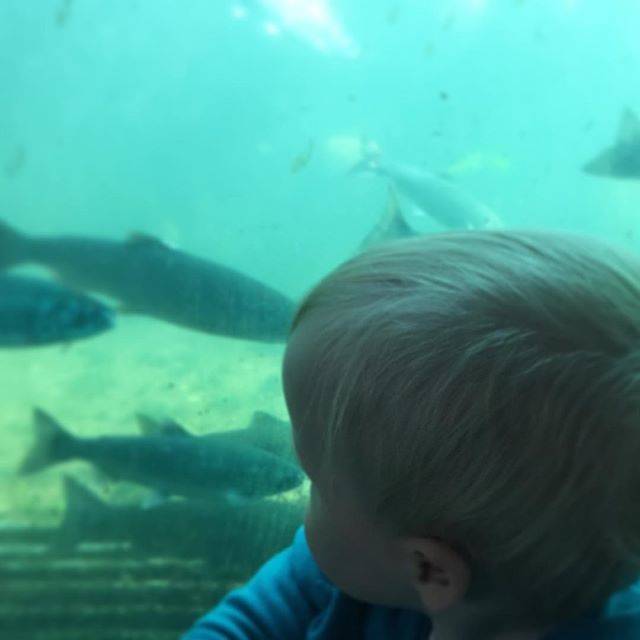
What is the process for trying to get a book published? I am sort of in learning mode. I need to make sure I have a really polished draft, and then send it to agents and editors hoping that someone gets excited about it. That’s the first level. There are also some independent publishing houses that I could approach, but I want to try to get an agent or an editor. Once an agent picks you up, then they will try to find a publisher. They have access to bigger publishing houses, whereas I wouldn’t be able to do that myself.
I’ve also heard that going with a smaller independent publisher can be good, because you have to do a lot more of the legwork and find your own publicity, but you can get a bigger share of the profit. If you get a big contract and your book doesn’t sell well, it’s harder to be kept on. If you have a smaller publisher, and your book doesn’t do well, you could still write another book and get a bigger one. I’m still soliciting advice on all of that, still in the learning stage. It’s exciting, and scary!
Was your first pregnancy (the miscarriage) a planned pregnancy? Yes. I started to have thoughts of how my life would be restructured. I didn’t know what it was actually going to look like, because I never went through it, but I knew there was going to be a shift of some kind.
It must have been really devastating to have to shift your mindset and then not be able to go through the pregnancy. It was very devastating, but I think that some of the changes that came out of that were really positive. One of them was my shift in the way that I looked at my art, and how I prioritized my family and my art.
Performing is hard because it’s a lot of hours away from home, often for very little money. You have to be a little bit selfish to be a performer, and I think the balance was a little bit tipped for me in an unhealthy direction. I don’t mean to make it sound like parents can’t be performers, but I had developed an attitude toward performing that wasn’t sustaining me emotionally, and it was having a negative effect on my relationship, and would have been negative toward how I approached a family.
It was devastating, but I think in the long run it has made me a better mother, because of the emotional aftermath for my husband and me. We had to deal with that individually and together, and it ended up making us much stronger. By the time we did become parents, we were in a much better place.
“I was so worried that I wasn’t going to be able to continue writing as a mother, and in some ways I’ve been more focused because I was so determined to not let motherhood stop me.”
When you had August, how was that transition for you? Was it what you expected? I don’t think it’s ever what you expect, but one of the things about not having a kid until I was 34, was I’d seen a lot of people in my life become parents. It wasn’t a huge shock. In terms of making art, the first couple of months notwithstanding (that’s a whole other beast), the barriers that I had to work around to stay focused are just different now. I was so worried that I wasn’t going to be able to continue doing writing as a mother, and in some ways I’ve been more focused because I was so determined to not let motherhood stop me.
Before, it was: “I’m at the hard part of editing something; I think my bathroom needs to be cleaned.” I would set aside time to write, but I would get really distracted. Now I’m so aware of how precious my time is. When I have a few hours, I get on it. I’m aware of what else is being sacrificed when I’m away from August. I’m leaning on someone else to watch him. I’m really aware of the trade off.
I can relate. Every moment has to be planned out. For me, it’s practicing: if I’m working on a big audition or concert, I have to make a rule for myself that as soon as Henry is asleep I have to start practicing immediately. I can’t do anything else, because I’ll never get to practicing. You don’t know how much time you have. For the first nine months August napped five half-hour naps every day. That’s when I started writing the haikus, because I was rocking him thinking, “Oh, there’s such a rhythm to this hell that we’re in!”
Who has been a strong role model or inspiration to you as a mother artist? I have a friend who is an actor and teaching artist. She and her husband have two kids. I love seeing the way that they work parenthood into their life. Their kids are a little older than August, and my friend will bring her kids with her when she has to, and has come up with all kinds of creative options for childcare. I’ve seen that working children into your work can actually be really good for them.
Sarah Ruhl is a well known playwright that has been a huge inspiration for me. She has been very open and upfront about having kids and how parenthood and her art intersect. She was part of a panel, and her child was somewhere within the vicinity and needed to be breastfed, so she just brought the kid up on the stage and fed her child. And she has said it wasn’t like she was trying to make a statement; her kid just needed to be fed. And she was there and her kid was there, so she fed her kid. She has a lot of clout because she’s quite accomplished, but she will write it into her contracts that her children are allowed to be in the rehearsal room.
She wrote a collection of essays called “100 Essays I Don’t Have Time to Write: On Umbrellas and Sword Fights, Parades and Dogs, Fire Alarms, Children, and Theater,” because even as accomplished as she is, she’s afraid she’ll never be able to write again. So to see her talk about the struggles of it, and how she works it in, it’s just a part of her that she doesn’t hide. It’s hard because you want to get your plays done, so you understand how you might want to try to hide who you are. I’ve seen friends in other industries take their kid off their Facebook page because they’re afraid they won’t be hired if people know they’re a mother. I get that, but I also feel very strongly that it’s never going to get better for women if we aren’t really open about that.
“It’s very common for playwrights to hide the fact that they are parents—especially mothers—because they are afraid that people won’t ask them for projects.”
Do you see that a lot in the theater world? Playwrights hiding their family roles? It’s very common for playwrights to hide the fact that they are parents—especially mothers—because they are afraid that people won’t ask them for projects. People make assumptions about what you can and can’t work into your life. They assume that you won’t be reliable, or they assume that you can’t be away from home in the evening. I’ve seen a lot of women playwrights try to hide the fact that they are even women. The disparity in gender for playwrights is insane.
There was a study done recently looking at the number of female playwrights with plays on Broadway over a 100 year span. What they found was that during the 1908/1909 season, the percentage of female playwrights with plays on Broadway was 12.8%, and a century later, in the 2008/2009 season, the percentage was 12.6%! In fact, there were no plays on Broadway written by women during the 2010/2011 season at all. It’s intense. Women will use a pseudonym, hiding the fact that they’re women.
Are there any other artists who have been an inspiration to you in the way they work parenthood into their work? I was really inspired when I came across the visual artist Lenka Clayton. She has created something called the Artist Residency in Motherhood. She has been very open about supporting every mother artist. She decided to do this for herself and to craft her own residency that fit into her life as a mother. And then she took what she had developed and she made resources that other women could just freely use on their own.
I went through the process, and it was really helpful for me, not only in figuring out how I could fit my art into being a mother but how those two things intersected. You can see her motherhood in a lot of her visual art, and that hasn’t penetrated my writing (except for the haikus), but what it’s lent me is a commitment to always figure out how to make it work. And I do get really nervous. I have this wonderful set up now that’s working, and I get really nervous when it changes. When August goes to preschool, when I’m trying to get back to my day job a little bit more, how am I going to make it work? Then I have to remind myself: when I set up my residency I set up the parameters that I have now, and I’ve kept that and it’s worked. I have to remind myself that the residency is going to continue on for me, and I have a commitment to making it fit, whatever changes. And so I have to take a deep breath.
Unfortunately there are not enough role models.
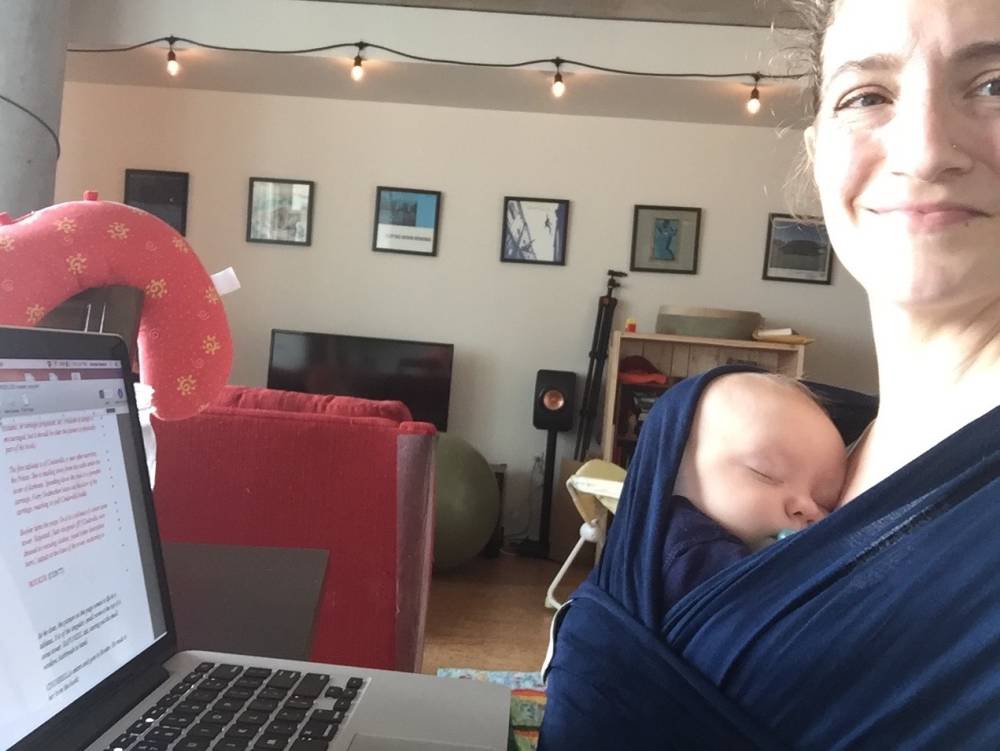
I know. It’s really hard to find role models. When we do find them it’s important to point them out. And when we don’t find them it’s important to be them. I think there may be more than we know, but I just don’t think anyone’s talking about it, at least the generation before us. There’s also a different relationship with fatherhood. I know I had a very active father, but his generation wasn’t necessarily all that way. And my husband’s father was very active, but again, we were lucky. I think it’s more common in our generation for fathers to be much more active, so that helps.
Something that I have been thinking about: these women that came before us had to fight just to have careers in the arts, at all. Maybe having a family wasn’t even on their minds because they had to fight so hard for their careers in the first place. Having a family might have put that in jeopardy. So we live in a different time, but the fight still continues. In other industries too! I nannied for a neurobiologist, and she was tenure-track. She had a kid that was special needs and had to take some time off because of that. She was worried that she wouldn’t make tenure because of it. It’s in every field.
I think we can also look to role models in other fields, like Sheryl Sandberg. She’s very vocal about being a mother, and just finding a seat at the table. There are a lot of reasons artists decide not to have kids, but I remember the first time I had that fear. I was in high school. I had just decided I wanted to pursue acting. And I remember I was in summer camp, and we were in our small groups, and somehow the conversation came up: Do you think you’ll have kids sometime? And I said I would love to have kids, but this is what I’ve decided to do with my life, and I don’t know if it would be a good situation for a child. One of the counselors who was not in the arts said, “You’re a wonderful person. Whatever environment you raise a child in is going to be a good one.”
What logistical steps have you had to take to make sure that you have time to write? I set up dedicated time every week. Right around the time when I was thinking about doing this artist residency in motherhood, my husband’s aunt said to me, “I know you like to write. Why don’t I come over for a couple hours every week, hang out with August. You can go write.” Just having that explicit offer was great, because it’s hard for me to ask for that time.
That is something I need to work past, because I do have to ask for that time in other ways, and I’m going to have to continue as our situation changes. But somehow I was able to reserve that time for my work. If I don’t, it’s really easy to get distracted on getting other things done before I do my writing. Once I became a mother, I became so much more aware of how precious my time was.
There’s no guarantee that I’m going to sell a book. There’s no guarantee that I’m going to have success, but there has to be some sort of finished product, at least attempting to get it out there in the world. And to be honest, attempting to have some financial return for it. I don’t think that you need get paid for your work to make it worth it, but the reality is you need income for your family.
“I don’t want to say it wouldn’t be possible without my family, because I like to think I would always find a way. But I am so incredibly aware of how fortunate I am and eternally grateful for my amazing village.”
Setting aside the financial aspect of it, I do feel like I’ve owed it to myself for a long time, and I haven’t been as focused. Not that I don’t finish projects, but I’m much more structured about it now. Setting deadlines, and following through.
All the art I make as a mother is made tremendously more possible by all of the support I have from my family. I have a husband who is very supportive and understands my need to make art, which is essential to my ability to do this. I also have a lot of help from extended family. Beyond the dedicated time I have from August’s great aunt when I am writing, all of the many times my parents and my in-laws help while I work my other gigs or run errands or just have a minute to myself, it all gives me the space to be focused and present to make art. I don’t want to say it wouldn’t be possible without my family, because I like to think I would always find a way. But I am so incredibly aware of how fortunate I am and eternally grateful for my amazing village.
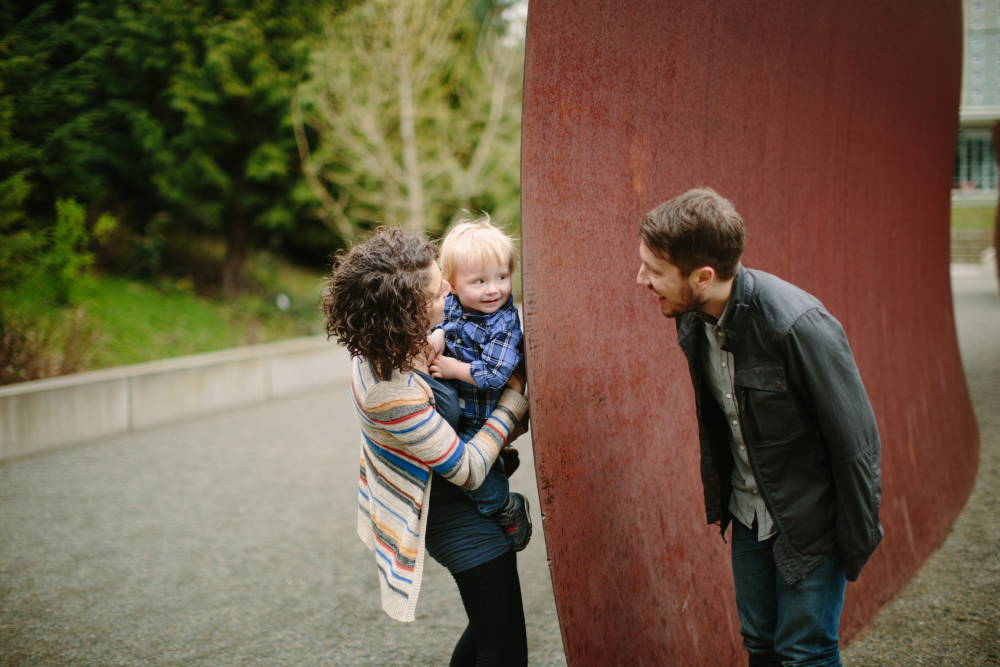
I know you’re kind of like me, piecing a lot of different things together to bring in income. What are some of the things that you do to make money? After I graduated from acting school, I took a couple years to go to sign language interpreting school. It’s something I had been studying as my foreign language and I really liked it, and I didn’t want to stop it. And my parents, bless them, they are so smart in how to talk to me. My mom didn’t say, “I think you need a backup option.” She knew better. She said, “You know, there’s so much you can’t control about art. Wouldn’t it be great if you also had something that you could control?” I’ve been interpreting professionally for 12 years now and it’s something that I love. It’s become more than a day job and something that I’m also passionate about.
I also teach theater, primarily to kids. I’ve found a community in that. I’m pulling back a little bit from that in the next nine months or so, because I’m hoping to do some freelance editing. I want to focus on manuscript editing, but other editing as well, because I think that one of the things about having a lot of disparate things that I do for work is that I end up feeling like I’m all over the place.
At some point I realized that all of these things that I’ve done in my life up until this point actually feed into the work of an editor. I have the language piece with interpreting, and the linguistic expertise. I’m a writer. I’m a teacher. And all of those things—my teacher’s heart, my focus on language, my background as a writer, my theater background as a storyteller—that all kind of feeds into editing. One thing about interpreting is that it involves a lot of commuting for each job. As August gets into preschool for a couple hours a day, I really want something that I can do from anywhere.
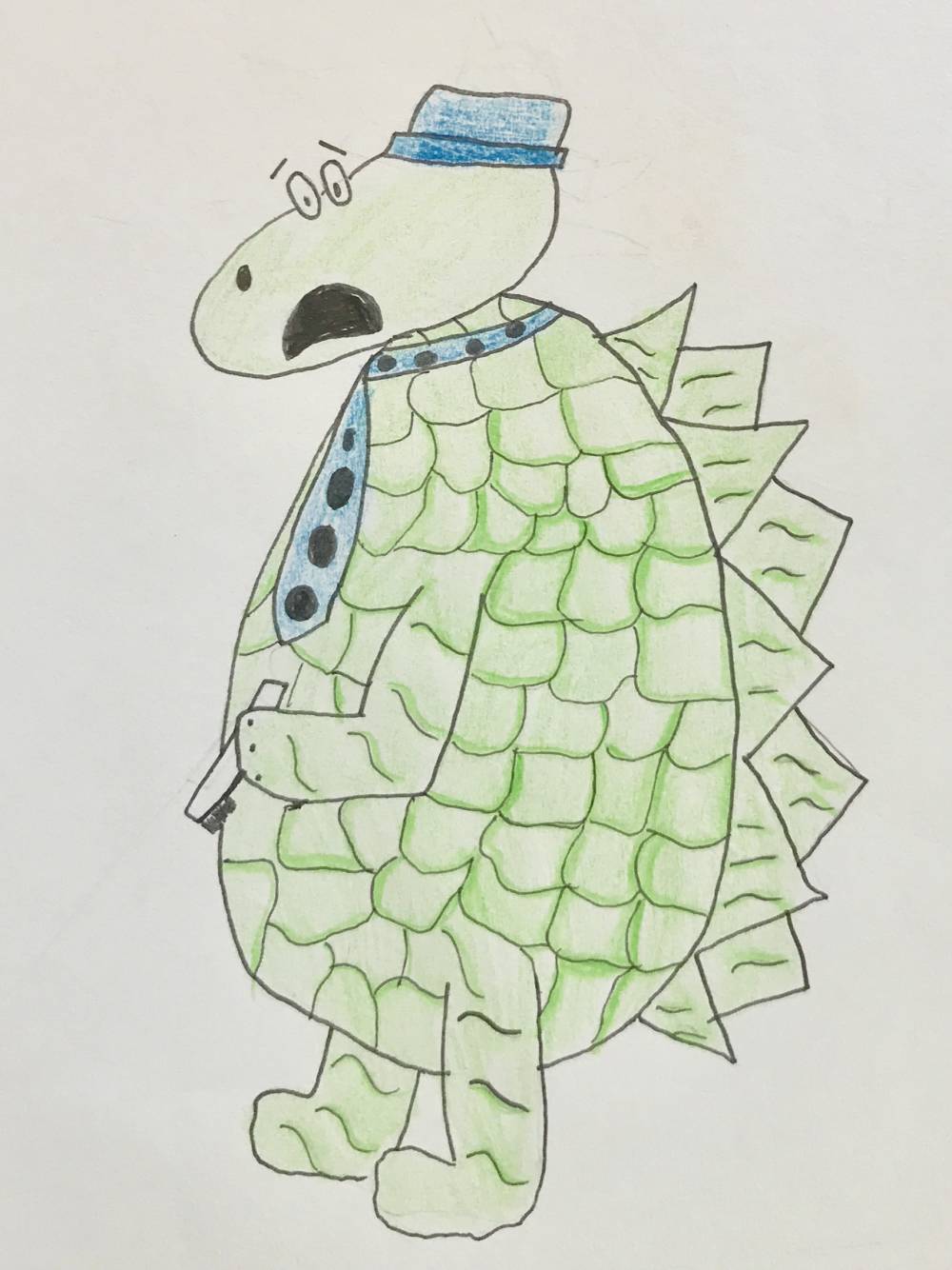
Other than your haikus, how has having a child has directly influenced your subject matter? When I am on vacation I intentionally don’t work on my main project. I don’t like to edit my manuscript while I’m on vacation, because even if I might have a couple extra hours, it just feels like work and I like to take that time off. But I’m often inspired to write, so that’s when I’ll start a fun new project just to hold on the shelf for awhile.
My lovely child really doesn’t like us to brush his teeth. He likes to brush them himself, which is not so good for his dental hygiene! He really processes the world through books, so I started drafting a book about a dinosaur who really doesn’t like to have his mommy and daddy brush his teeth. I’m not much of a visual artist, but I learned how to draw some basic things and I drew a little dinosaur not wanting to get his teeth brushed. I think that’s something I’ll come back to and finish polishing after I’ve done this novel.
As August gets older I see how it will be much more impactful on my subject matter, because I tend to write a lot of child characters and a lot of things for children. I have a play that I’m currently sending out to try to get produced but it’s intended to be done by teenage actors. The protagonist in my novel is ten years old, and she has a sister who is three. I’ve always worked a lot around children and I have so many nieces, so kids have always permeated into my subject matter. As my son gets older it will continue to be that way.
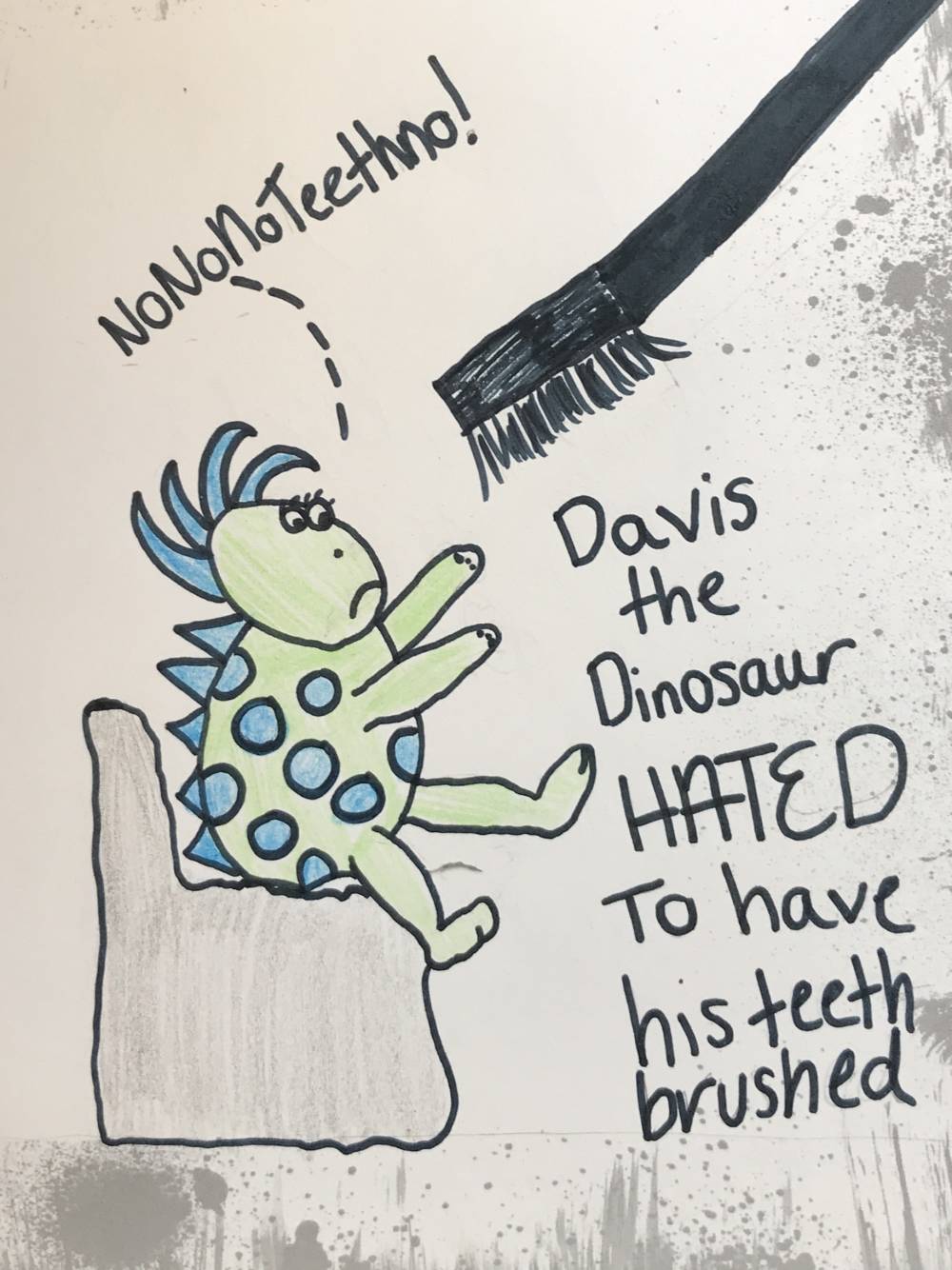
What are some resources for artists with families that you’re aware of? One of the reasons why Lenka Clayton made the Artist Residency in Motherhood for herself is because there are a lot of Artist Residencies out there, but many of them involve having to go away for weeks at a time in the woods. That is great for an artist, but very hard if you have a family.
There a couple of artist residencies that are specifically geared toward families: I-Park Foundation Artist-in-Residence Program and the Kala Art Institute Parent Artist Residency Program. Your family can come stay with you, they have summer camp for the kids, they prepare all of your meals so you can still be there and be with your family—but your family is occupied. I would love to see more of those types of things: programs and grants that are specifically for parent artists.
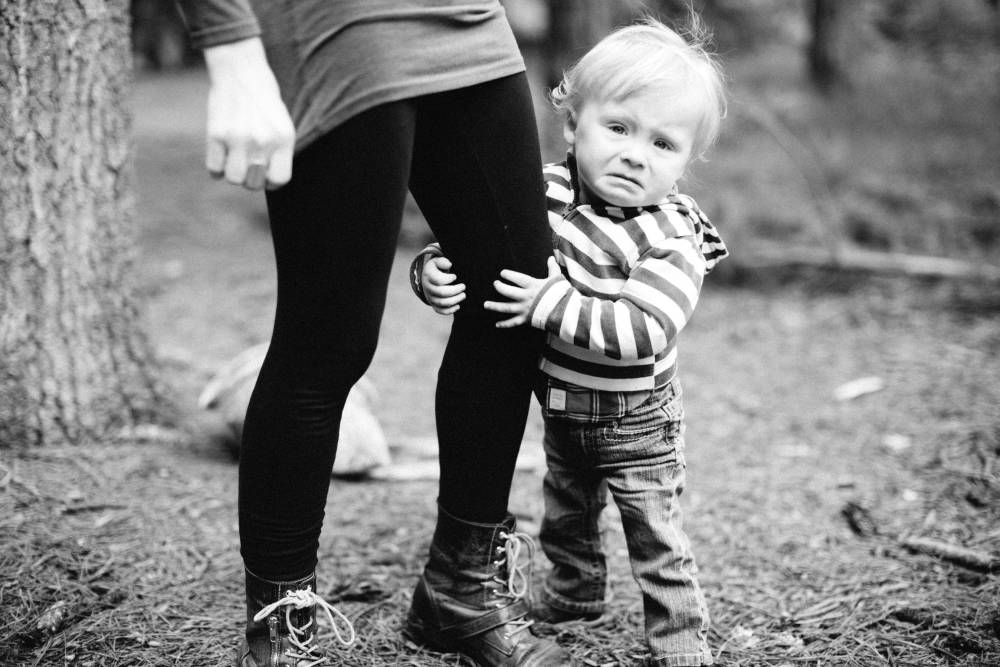
I was getting ready to submit for a grant for the Sustainable Arts Foundation, and they came out with an announcement that they are prioritizing artists of color, which I think is great. There are so many barriers that artists of colors have to begin with, and adding parenthood on top of that makes it more complicated. So I backed away from that, because they probably shouldn’t give it to me. My barriers are not socioeconomic, they’re just personal barriers.
Do you have any advice for other Mother Makers? It can feel really selfish to focus on your art, but just remember a couple of things: First, it’s okay to be selfish with your time. Second, it’s good for your child.
“It can feel really selfish to focus on your art, but just remember a couple of things: First, it’s okay to be selfish with your time. Second, it’s good for your child.”
If you have something outside of your role as a mother, whatever that is, you’re a healthier mother, and you’re going to be a better mother. It’s like putting on your oxygen mask before you put on your kid’s oxygen mask in a plane.
It’s also good for them to see. If you have a daughter, seeing her mom going to work or making her art is going to make that girl much more likely to feel like she can do the same when she gets older. And my son is going to have a better idea of what a family looks like, and what a partnership looks like.
Further reading from Andrea:
